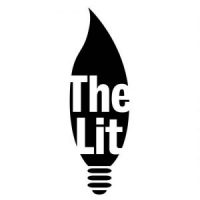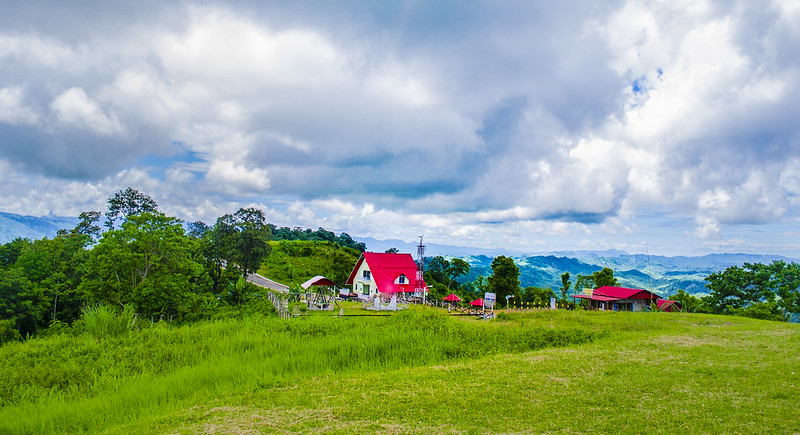by Raisa Zannat
On a bright winter morning, I waited inside an army jeep parked outside of a red guesthouse in Sajek Valley, a little valley located in the mountainous southern part of Bangladesh. My uncle waited impatiently in the driver’s seat for my cousins to come down, cursing under his breath every now and then. He was a very punctual man. I wonder where he learned it from: was it his years of experience in the Army or did he inherit it from his strict father who always made him wake up at the crack of dawn? My uncle had been waiting for ten minutes, but my cousins had yet to come down.
The day before my uncle and I hiked a nearby mountain trail — a five-hour-long hike ending with lunch at a tribal village. I was excited about the hike but felt terrified at the same time. Being raised in a city, I was not accustomed to mountain air, nor was I used to hiking for five hours straight. My uncle often called me “Farm Chicken,” because according to him, I was raised like one. Always protected, fed, and kept away from the wild. That day, he would drive this “farm chicken” to the airport. I had a flight to catch. A thirty-minute flight to the city and fourteen-hour flight to New York later that week.
I had taken many trips with my uncle, a Lieutenant Colonel in the Bangladesh Army. I spent most of my summer vacations in cantonments in whichever part of the country he was stationed. The late-night swimming lessons and the ice creams after the evening hike were my favorite part of summer. Every evening when we went out to run, I remember the marching soldiers would always stop to acknowledge my uncle and would not move until he gave the sign. This would fill me with a great sense of pride.
Every child needs a hero. Someone they can look up to, someone they can boast about. My uncle was that hero for me. And not only for me, but for many other people. This one time, I saw him help a sergeant with his exam. My uncle tutored the man every day after work for a month or so. The day the sergeant passed his test and became sergeant major, he showed up at our door first thing in the morning: bright-eyed, full of hope, and with a smile up to his ears. He hugged my uncle, and I could see tears form in the corner of his eyes. After the sergeant who was now a sergeant major left our premises, my uncle turned to me and said, “It’s the little difference that you make in this world.” Back then I didn’t know what he meant. I was just a sixth grader who was worried about school and her friends. I was naive and too distracted to understand the value of this phrase.
It was half past nine when we started to drive to the airport. My uncle looked straight ahead. The roads were curvy, sometimes slanted. He seemed to know them. My cousins chirped away in the back of the jeep with my bags on their laps. While driving by a farmers’ market, a local ran towards our vehicle with two pumpkins in his hand. My uncle halted the jeep and assured the guy that on his way back from the airport he would buy those pumpkins. The guy seemed satisfied. While fixing the rear-view mirror, my uncle said to me — “You could have stayed a couple of more days here. The fresh air would have done you good. What is it about Dhaka? Only traffic and pollution. One can’t even breathe there.” Sitting in the back seat I just hummed in response. I wondered if he forgot that I wouldn’t be in Dhaka for long. I was leaving for New York in a week and things were not going to be the same. During this one month that I spent with him, he didn’t mention once how he felt about me moving away. I didn’t bring it up either. Whenever one of my cousins would bring it up, he would just say “One doesn’t have to leave their own country to make a better life, anyone can make a good life out of whatever they have.”
We reached the airport in time. My cousins helped me with the bags. We waited at the lounge and had our breakfast. My uncle decided to pick plain toast and butter. I started thinking about all the breakfasts we had together. He loved the way I made tea for him. Two spoons full of black tea boiled to perfection in milk, with a spoonful of sugar. He used to brag to others that I knew the perfect way to make milk tea. I didn’t know if I would be able to make any more tea for him. I didn’t know when I would see him again.
It was a perfect morning — bright, sunny, and a bit cold. I thought to myself — if I wasn’t flying back; if I was still in the little valley, I would have probably taken a walk. A walk around the park, or the lake where I fished with my uncle many times, or strolled around the garden that had hibiscus flowers in it. The day would be very different. I would have gotten myself a little tanner or I would have gone home and had that pumpkin from the farmer’s market that my uncle bought. My grandmother would have cooked it sweet and spicy, slightly caramelized, sauteed in oil, and seasoned to perfection. With a side of warm white rice.
I looked up at my uncle. He didn’t have his uniform on today. He was in his civil wear: a plain polo t-shirt with formal pants and New Balance. Such an odd combination, yet comforting to me. I had seen him in every attire: in various uniforms, in joggers, in white Punjabi for the Friday prayers. Even though he was in his mid-forties, he always seemed older and intimidating. I remembered the first comic book that he got me from the US, the first letter he wrote me from his mission in Sri Lanka, and the first MRE he brought me from his UN training because I wanted to see what he ate, the bandana that he sent me from Darfur.
The concierge came to notify us that it was time for me to board the plane. My uncle hurried to get up, and I felt a sudden tug in my heart. I spent many months with this man and there were moments when I didn’t like his company. He felt a little too much at times. A little too intimidating, a little too authoritative, a little too unnecessary. But now, when it was time to leave him for good, something did not feel right. I wanted to hug him, but I had never hugged him in twenty years of my life.
I stared blankly at my uncle. unsure of my emotions. He rushed me to get up but then stopped. Maybe he could sense that I wasn’t ready to leave yet. He gently tapped me on the back of my head and said, “I know you’ll be okay out there; you are a good kid and I have trained you well.” I hugged him and tears rolled down my cheeks. Two decades of memories started weighing on my heart and it was too much. I picked up my bag and ran to the door, not looking back once. To this day I wonder if he broke into tears just like me, or if he stood strong fighting his emotions like he always did.
Four years later, I am okay out here living by myself. Even took a little trip to Poconos this summer. Hiked in the mountains. Got me a stick to wave around in case I see a snake or two. I wish I could go home and write a letter about my lone adventures to my uncle, who taught me everything I know. Someone who gave me the courage to be who I am today. Independent, strong, and not afraid of adventures. But he is not here among us anymore. What remains is the little difference he tried to make in this world through his actions. Maybe someday, someone will look up to me the way I looked up to him, and I too will inspire a little heart to do great things.
Raisa Zannat was born and brought up in Dhaka, Bangladesh. She is a Writing and Literature major at LaGuardia who is transferring to City College for her Bachelor’s. She currently resides in Queens, New York, and takes her writing inspiration from her South Asian diaspora. She enjoys writing about food, culture, and lifestyle.
Image credit: “Once upon a time in a valley,” Toufique E Joarder. Flickr CC BY 2.0

